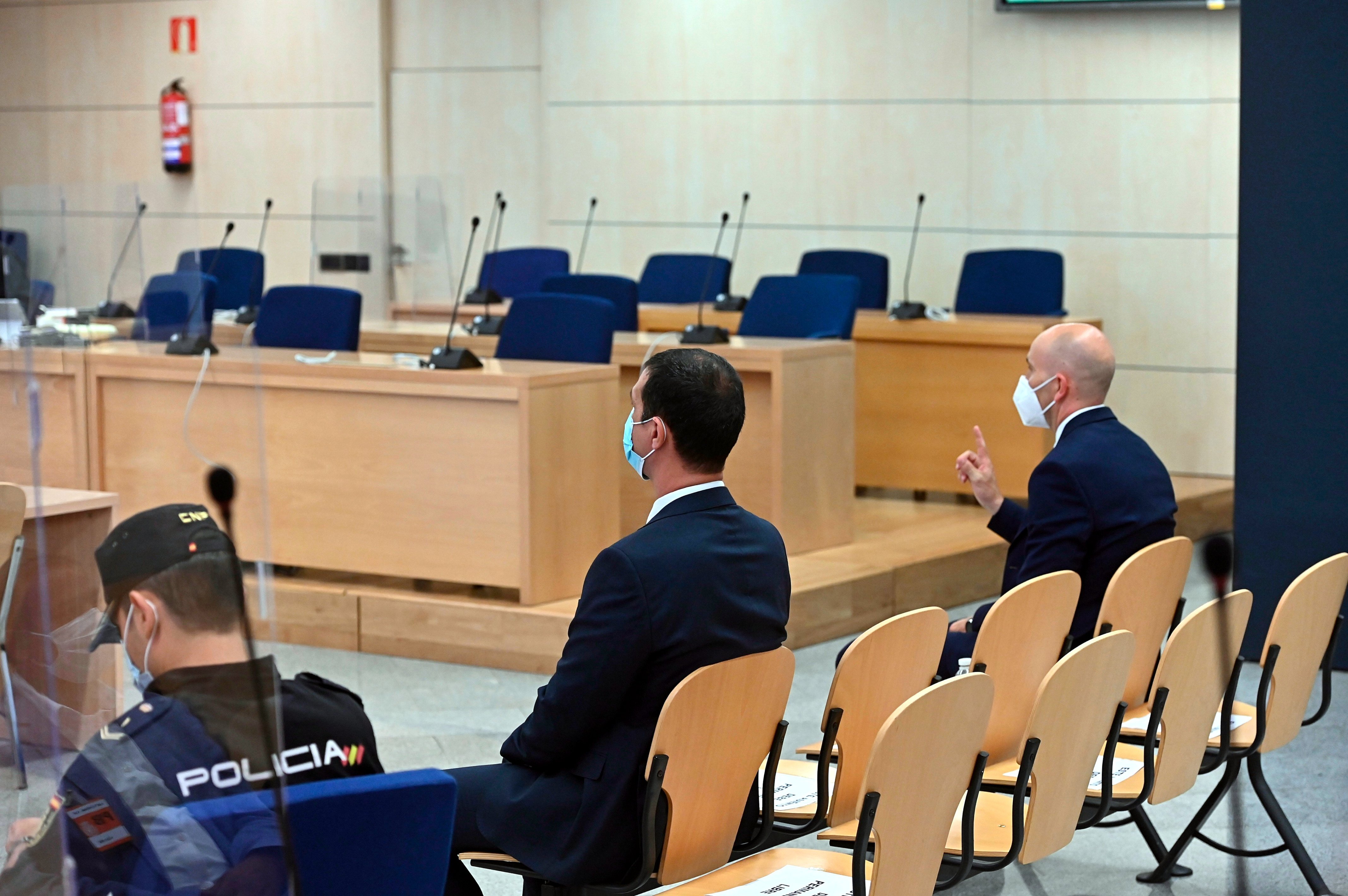A Spanish criminal court has acquitted two Mossos d'Esquadra police officers, who were acting as bodyguards for Carles Puigdemont, of attempting to "conceal" the exiled Catalan president on his journey through several northern European countries, before his arrest in Germany in March 2018.
It is a rare victory in the Spanish courts for pro-independence positions. The most first and most resounding such acquittal was that of the Mossos d'Esquadra police chief, Josep Lluís Trapero, acquitted last year on a charge of rebellion for his role during the 2017 referendum period.
Today's decision by the National Audience court considers it proven that the two Catalan officers, on holiday leave, helped Puigdemont, aware that he was being investigated in Spain and that there was a European Arrest Warrant issued for him, but concludes that their actions cannot be classified as a crime of concealment under article 541.3 of the Spanish Penal Code.
Presiding judge Jose Manuel Fernández-Prieto explains in his ruling that it was proven that the two Mossos, taking advantage of time off work, drove to Stockholm to pick up Puigdemont and began a journey with him through several European countries until his arrest on March 25th, 2018 in Germany.
The judge explains that the defendants helped Carles Puigdemont, aware that he was being investigated in Spain for his participation in events which at the time were suspected of constituting rebellion, and that the Spanish investigating judge in charge of the case had issued a European Arrest Warrant in order to obtain the politician's extradition. The intention of the defendants, according to the judge, "was to help Carles Puigdemont return to Belgium and avoid his identification in a place where the European Arrest Warrant could have been executed." Indeed, this is what the officers stated at the trial and the judge has accepted it in acquitting them.
The sentence analyzes article 451 of the Penal Code that defines the offence of concealment and concludes that in this specific case they could only be convicted if they had concealed actions that could be classified as a crime of rebellion, and had acted in a way that abused their public functions - requisites which were not met in the case. The judge also notes that the actions tried by the independence leaders' trial were, in the end, classified by the Supreme Court as sedition and not rebellion.
The two Mossos travelled to Waterloo and took responsibility for the president’s security during the trip from Stockholm to Brussels on March 23rd, 2018.
Two days later, German police arrested Puigdemont just after he had crossed the border from Denmark. The public prosecutors were demanding three years' prison for the two men for the alleged crime of concealment.
A new arrest warrant for Puigdemont had just been issued, and the intention was, according to the two officers on trial, to reach the Belgian public prosecutors office as soon as possible. That's why they took "fast routes in order to be able to deliver Puigdemont", they explained in the first session of the trial. They reiterated that in no case did they try to avoid the police, hide or flee. They believed that what they were doing was the right thing because the Catalan president's lawyers had told them that Puigdemont had to be taken to the public prosecutor's office after Spanish judge Pablo Llarena has issued a new arrest warrant.

